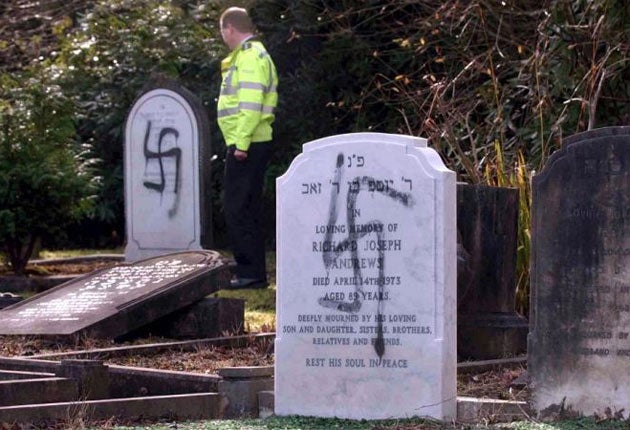Hate crime figures paint a grim portrait of life in Britain

A detailed picture of hate crime in England and Wales was revealed for the first time yesterday with new figures showing that more than 52,000 incidents were recorded last year.
Nearly 45,000 incidents of race-related hate crime were reported to the police while almost 5,000 people were the victims of crime because of their sexuality.
The numbers, released by the Association of Chief Police Officers (Acpo), represents the first time that hate crimes have been accurately calculated over a calendar year and broken down into types of discrimination.
Previously the numbers were based on estimations. But yesterday's figures show that the levels of hate crime in Britain are worse than were previously thought. The 52,028 incidents recorded by police forces in England and Wales in 2009 is a 12 per cent increase on the 46,300 said to have occurred in 2008.
In 2009 there were 43,426 race-related hate crimes recorded by police forces in England and Wales. This is a 10 per cent increase on the 39,300 estimated to have taken place in 2008.
Crimes committed due to the victim's sexuality increased by 12 per cent, from 4,300 to 4,805. The biggest rise was seen in crimes motivated by a person's disability. They rose from an estimated 800 to 1,402 – a 75 per cent rise.
The numbers only take into account crimes which were reported to the police. Devon and Cornwall Chief Constable Stephen Otter, the Acpo spokesman for equality, diversity and human rights, said that the true number is almost certainly even higher.
"Hate crimes cause a great deal of harm among victims and communities," he said. "Against the 2008 benchmark year we believe the 2009 data shows an increase in all five classifications of hate crime.
"Whilst we want to reduce the incidence of these crimes, it is vital that we close the gap of under-reporting. Only by increasing reporting can we gain a full understanding of the extent of hate crime."
It is only since 2008 that police forces have been obliged to record hate crimes by the type of discrimination that is said, by the victim, to have motivated the offence. While some forces returned figures in 2008, that year's numbers were largely based on extrapolations. Last year was the first that all 43 forces in England and Wales returned accurate data. Groups and individuals concerned with hate crimes said the figures were worrying, but that the police recorded data still masks the true scale of the problem.
Professor John Grieve, chairman of the Government's hate crime advisory group, said: "The UK is amongst world leaders in the way that it responds to hate crime, but there is still much work to do. One of the greatest challenges is to reduce the under-reporting of hate crime."
Sam Dick, from gay rights group Stonewall, said: "While we welcome these figures they do only tell half of the story. YouGov research for Stonewall showed that three in four victims of homophobic hate crimes did not report them to the police – often because they did not think the police would or could do anything."
